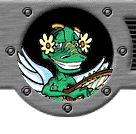





 |
 |
 |
||
 |
 |
 |
||
|
|
|
|
|
|
| Home : Humanistic Module : Tools | ||
Tools of Utopia
CommunicationCommunication is the exchange of information from one sentient being to another. This exchange does not always have to be verbal. Information can also be exchanged through writing, body language, or even electronically. To learn about a person, their drives and motivations, some form of communication is required. When the communication is real (honest and meaningful) it builds relationship. Peer TutoringA peer tutor is a person who assists someone at the same (or close to the same) mastery level as they are. It is almost always a symbiotic relationship because as the tutor teaches the concepts they become versed in them, becoming 'experts', and the person who is being tutored is again exposed to the concept, perhaps in a way that it has not been explained before. Both gain knowledge of the subject from the experience. One of the best times for peer tutoring is the fifth grade when students are especially geared to learning by talking. One student may be struggling in math, and so another student in the class can be paired with this student to assist the struggling student, and further reinforce the learning in the peer tutor. Person BuildingPerson Building is very important to a humanist. It is the concept of exposing a person to unconditional positive regard, and through this the recipient feels more fully human. Through this feeling of being fully human the person is free to grow and to make good choices that they might not be able to make if they felt judged, or like they were performing as a person at a lower level than they could be. Person building is sometimes hard to do, (unless of course you are in-love) but is rewarding. Watching a student, who is not smart, and does not dress well, and does not even smell very good, begin to blossom in your classroom, because you have been able to stop paying attention to what is wrong, and have started to like them because they are alive and therefore deserve to be liked. NeedsNeeds are the things that a human being must have to live. They are often described in a hierarchy,such as Maslow's hierarchy so that their importance in terms of, can the person survive without them, can be determined. It is believed that if the basic needs are not met, the needs for air, water, or even safety, then the person can not move on to meet other needs, such as the esteem or self actualization needs. The most basic of the need are physiological needs. Biological needs such as oxygen, food, water, warmth/coolness, protection from the elements. These needs are the strongest because if deprived, the person could or would die. People also have safety needs. These can be felt by adults during emergencies, or periods of disorganization in the social structure. But these needs are more frequently felt by children who often display signs of insecurity and their need to be safe. People also have a need for love, affection and belongingness. To not only give, but to receive love. Next in the hierarchy are esteem needs, this is a need for self respect, respect from others in order to feel that they are valuable worthwhile human beings. The last level of needs according to Maslow are self-actualization needs. Maslow describes self-actualization as an ongoing process. Self-actualizing people are involved in social or environmental causes. The are devoted, work at a calling, a dedication. Needs are not the same as wants. Wants are simply things that a person decides might improve their life. They are not essential for sustaining life, or growth. MotivationMotivation is the internal drive that helps a person to achieve, and continue to work on tasks that have been started. This drive, through messages, is what keeps humans on the task of becoming all that they could and should be. It can also help them achieve what may seem to be insurmountable odds if it is a strong enough force. It is a very important mechanism, because without it a person may fall into laziness, or not achieve the basic things they should be able to accomplish in life. A motivator, something that causes your motivational drive to kick in, could be external. If you want a new car, the car is the motivator, what messages your brain sends you so that you are able to do what it takes to get the car is motivation. Traits and StatesTraits and states are two separate concepts that can be easily confused. A trait is a stable personal characteristic. It does not change, not with mood or day, or person you are currently with. Traits are the bits and pieces that make you unique, they are the parts that make up your personality. Being a kind person, a talkative person, an extrovert. These are all different traits. These and many more may be what make up your personality. States are how you are reacting to your environment at any given time. They are the group of behaviors you exhibit. They are not stable and could change in a flash. They can also last a long time though they do eventually change. Being in a rage, being in love or even being depressed are states. Antiseptic BouncingThe term 'antiseptic bouncing' describes a form of crisis management that is used with a student who becomes angry and agitated and is basically losing control of themselves (having a temper tantrum), but before the child erupts into violence or severely disruptive behavior. The teacher removes the child to another location, in a manner that suggests the move is for the child's own benefit, not the teacher's or the class'. It is not a form of punishment and the teacher does not criticize or condemn the child. The goal of the move is to allow the child time to regain self control without the public embarrassment of getting into trouble. The teacher may then come and assist the child to refocus. HumorHumor may be the most valuable tool anyone has. To be able to laugh at oneself, and get others, who take themselves too seriously to laugh, find the joy, is an invaluable skill. Laughter as long as it is not laughing at the person, but laughing with them, can take the sting out of many painful times. The act of laughing at a situation, can take the power away from it, and may help the person begin to see it in a different light. No matter how humor is achieved, as long as it is at no one's expense, it makes a difference in interpersonal relationships, and it makes everyone feel good. Honor for Heritage, DiversityTo honor a persons heritage and diversity is to recognize and hold in esteem their values and principles. It is to recognize that though they might not come from the dominant culture that their culture is equally important, and their traditions should be likewise honored. It is important to remember that this is not always broken down by race, religion or social class. Many assert that the diversity between families is a far more striking difference than the differences found in ethnicity. Each person expects that the things that they have been taught to hold dear should be respected by other people. Honoring heritage respects those traditions and beliefs. Honor for IndividualityTo honor a persons individuality is to appreciate all of the traits that make the person unique. This requires a suspension of judgment on the person and those traits. When this is done then more of the person and their unique personality can be valued and appreciated. This precludes molding someone into a different person, or 'changing' them, since they are already precious and valuable the way they are. To want to change them would state an inherent value judgment, that they are not already enough. Once you have completed this topic you should: Go back to Tools
|
||
| E-mail J'Anne Ellsworth at Janne.Ellsworth@nau.edu | ||
|
Course Created by J'Anne Ellsworth & Center for Technology Enhanced Learning Copyright
© 2001 Northern Arizona University |
 |
 |
 |
 |
 |
|